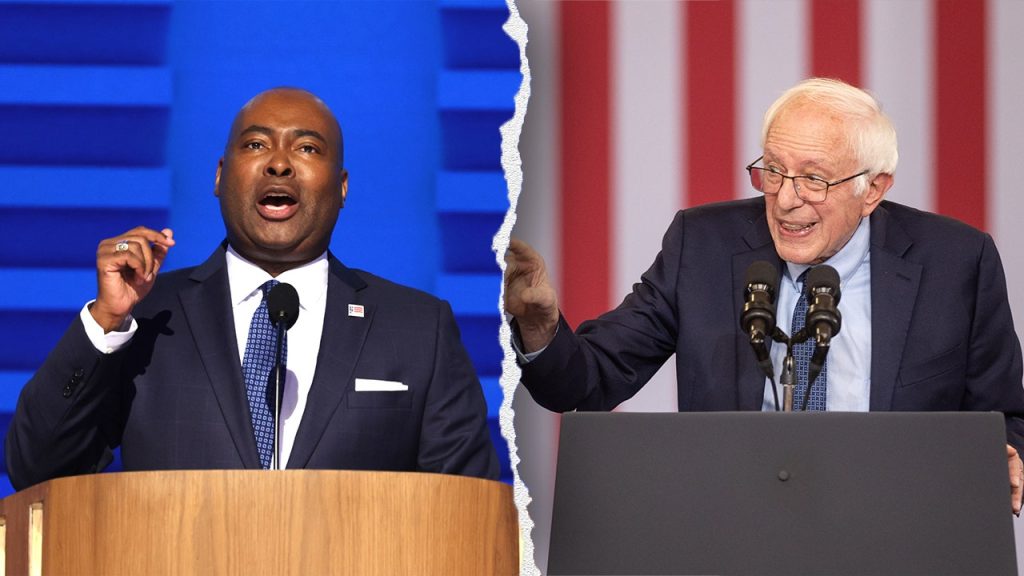DNC Chairman Jaime Harrison and Senator Bernie Sanders engaged in a public spat over the Democratic Party’s relationship with the working class. Sanders accused the party of abandoning working-class people, which he believes led to their loss of support. In response, Harrison defended President Biden’s pro-worker policies and criticized Sanders’ assessment as “straight up BS.” Harrison highlighted Biden’s achievements in protecting union pensions, creating jobs, and addressing racial wealth disparities. He also emphasized the potential benefits of Biden’s proposed policies, such as child tax credits and Medicare coverage for senior healthcare. The disagreement between Harrison and Sanders reflects broader tensions within the Democratic Party following their recent electoral losses.
Sanders, in a separate post, excoriated the Democratic Party and Vice President Harris for their handling of the recent campaign, which he described as “disastrous.” He questioned whether party leaders and consultants would learn from the defeat and address the political alienation felt by millions of Americans. Sanders also criticized the influence of big money interests and the oligarchy in shaping Democratic Party policies. Vice President Harris, who has only received 226 Electoral College votes so far and lost critical swing states, has faced significant scrutiny for the party’s electoral setbacks. The Democratic Party’s losses extended beyond the presidential race, with Republicans projected to secure majorities in both the House and Senate, reflecting a widespread defeat for Democrats across the board.
Harrison’s public rebuke of Sanders and defense of the Democratic Party’s record on workers’ issues come as internal divisions within the party are under increased scrutiny. Sanders’ criticism of the party’s campaign strategy and policies raises questions about the direction of the party moving forward and how it can address the concerns of working-class Americans. The disagreement between Harrison and Sanders underscores broader debates within the Democratic Party about its messaging, policies, and electoral strategy. The aftermath of the recent election has fueled discussions about the future of the party and how it can regain the trust and support of voters, particularly those in the working-class demographic.
Despite Sanders’ re-election to the Senate and the continued leadership of figures like Harrison within the Democratic Party, the recent electoral losses have prompted soul-searching and calls for change within the party. The defeat of Vice President Harris and the broader Democratic losses in key races have raised questions about the party’s messaging and appeal to different demographic groups. There is a recognition among party members that a new approach may be necessary to address the concerns and priorities of working-class Americans, especially in the wake of significant electoral setbacks. As the Democratic Party seeks to regroup and move forward, the tensions between different factions within the party, as exemplified by the clash between Harrison and Sanders, will continue to shape its future direction and political strategy.
Harrison’s decision not to seek re-election as Chairman of the Democratic National Committee signals a potential shift in party leadership and a fresh start for the party in the wake of its recent electoral losses. The upcoming leadership changes present an opportunity for the Democratic Party to reassess its priorities, messaging, and organizational structure in order to rebuild support and position itself for future electoral success. The public disagreements between party leaders like Harrison and Sanders reflect broader debates within the Democratic Party about its identity, values, and approach to governing. As the party looks to the future, it faces a range of challenges and opportunities in addressing the concerns of working-class Americans and regaining their trust and support.













